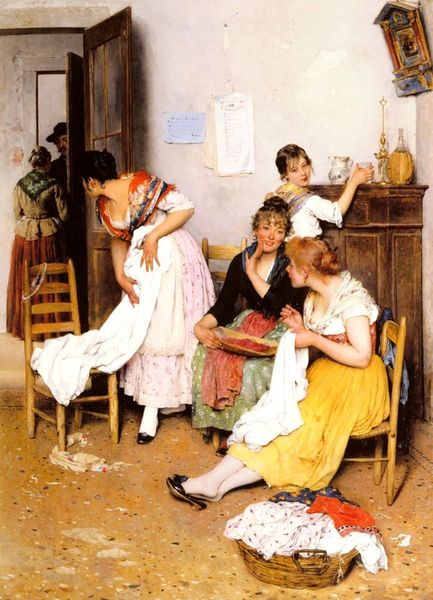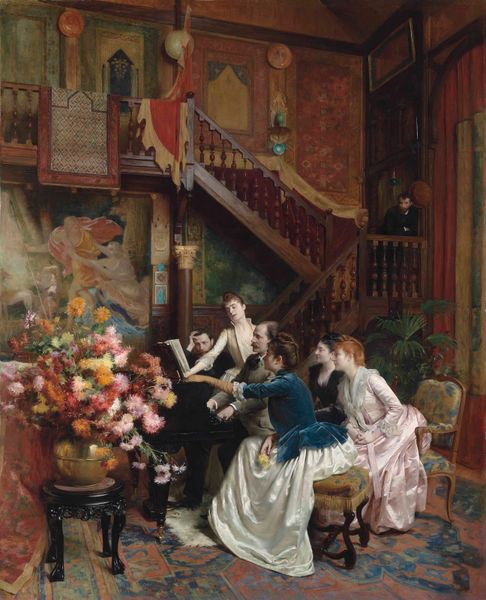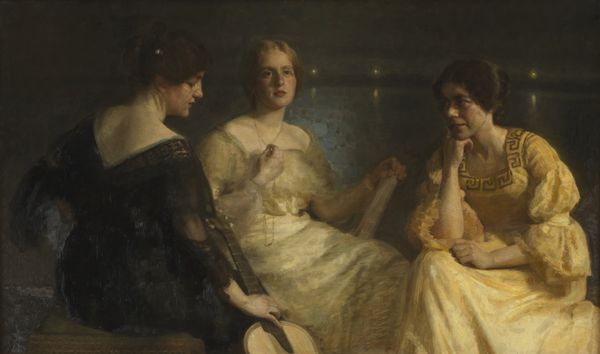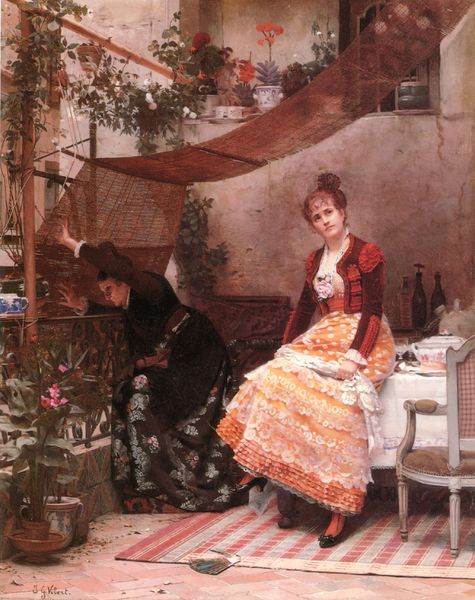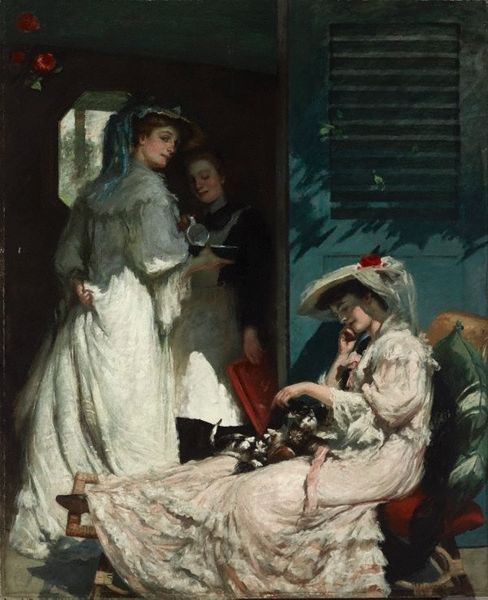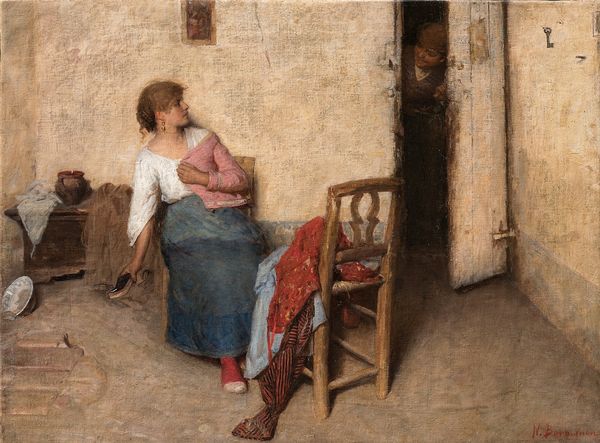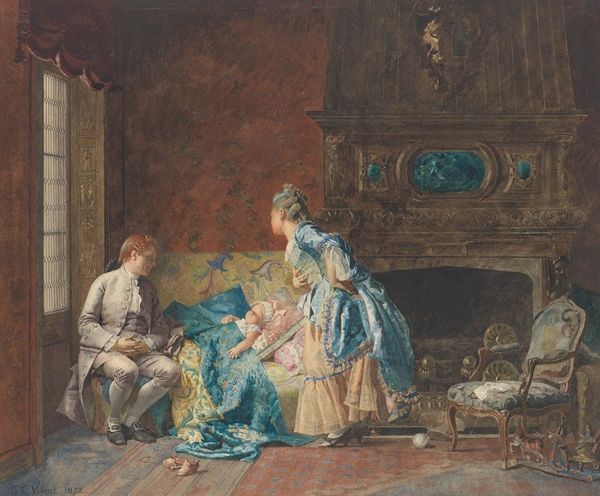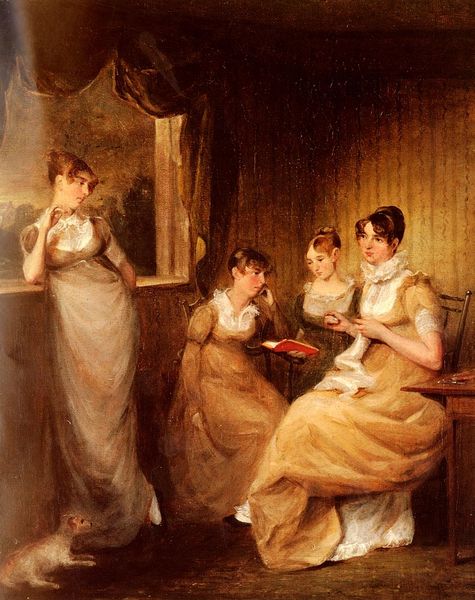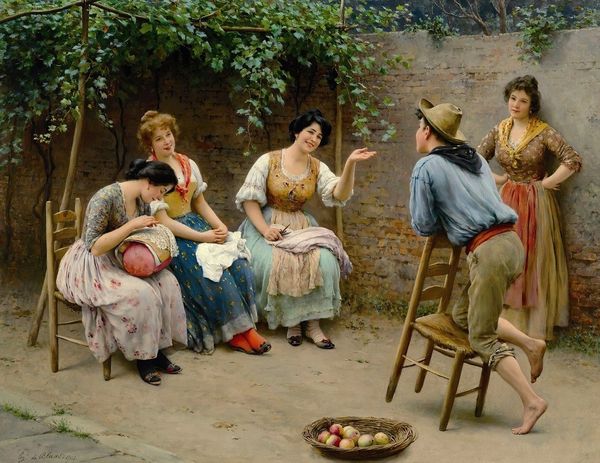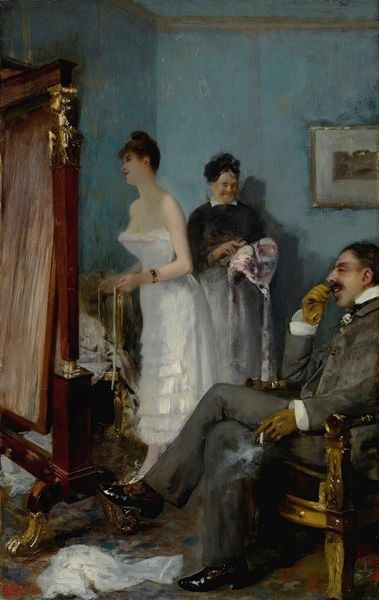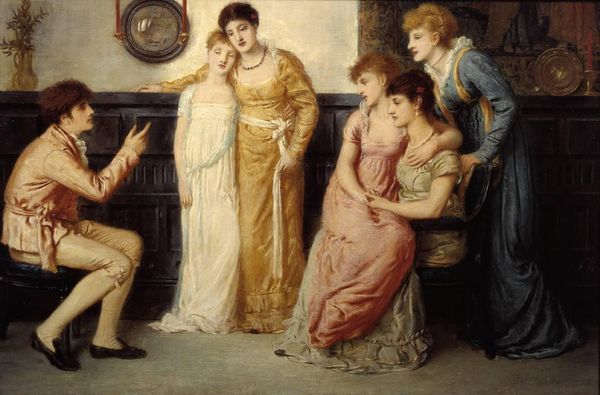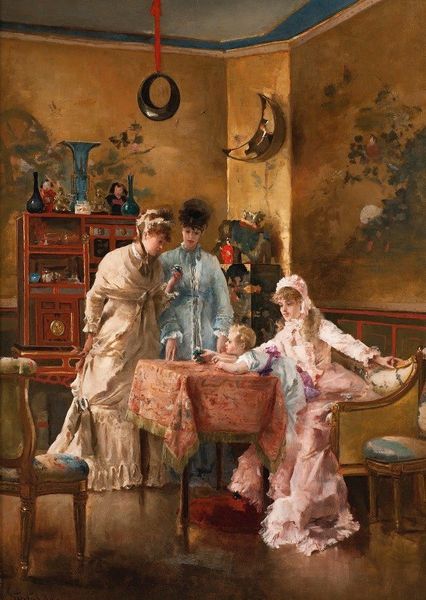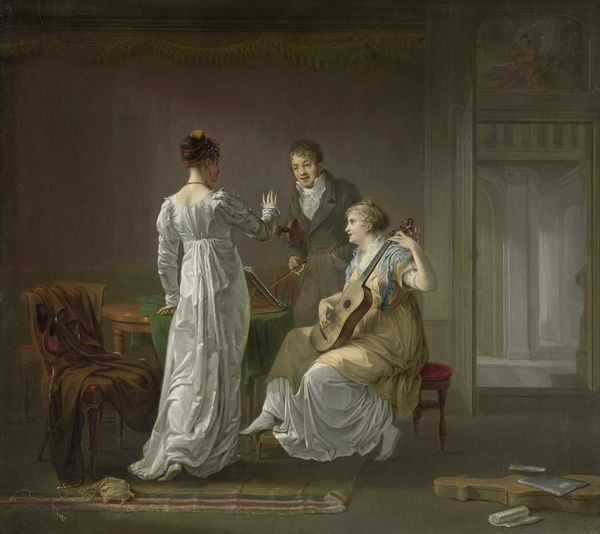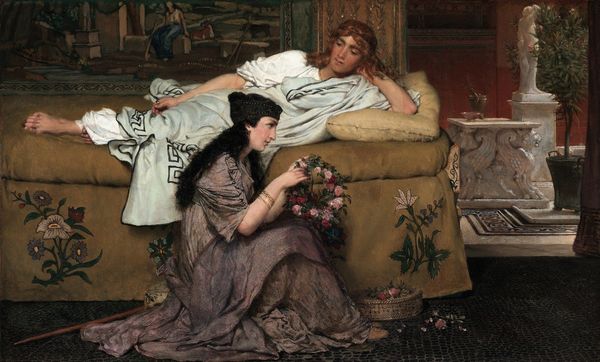
Dimensions: 122 x 98 cm
Copyright: Public domain
Curator: Let’s turn our attention to "The Friendly Gossips," an oil painting by Eugene de Blaas from 1901. The moment captured feels intimate, doesn't it? Editor: It does. The light spills across the scene like warm honey, but those gossiping women... there’s something performative about them. All that cloth and lace feels weighty, suggestive of labor but also luxury, doesn't it? Curator: Precisely. De Blaas was known for depicting these sorts of genre scenes, almost theatrical vignettes of everyday life. Look at the way he's framed the man in the doorway – poised, almost lurking with that mandolin – the women’s secrets are about to get some musical accompaniment! Editor: The man seems to be a distraction! Think about the production: oil paint, canvas stretched and primed... De Blaas is carefully constructing a specific vision of domesticity, and its labor—hiding as much as he's showing us. Curator: And perhaps that’s where the magic lies! There’s this little spark of mystery, a private world we’re invited to glimpse. The soft focus on their faces enhances the dreamlike quality, as if we are drifting between memory and fantasy. Editor: I find the material conditions fascinating. That billowing fabric is rendered with a realism that’s almost seductive, but the act of laundry here isn't celebrated; it’s just background dressing for the real drama – gossip as social currency! Curator: Absolutely, I find that the very brushstrokes dance across the surface. We're witnessing more than just a moment; it’s a symphony of gestures, of whispered secrets and knowing glances. Editor: And the unspoken anxieties that women workers always had to face... or are these idle bourgeois women for whom washing laundry is just one more piece of household management to control? I am going to assume, until the evidence pushes back, that this painting uses the scene for the benefit of an upper-class consumer. Curator: Regardless, these layers provide a mirror to our own stories, reflecting our desires, fears, and ultimately, the fleeting beauty of our shared humanity, don't you agree? Editor: Perhaps. I’m just hoping we can dig a bit deeper into who exactly these women *were* not just who they *appear* to be. That's all.
Comments
No comments
Be the first to comment and join the conversation on the ultimate creative platform.
